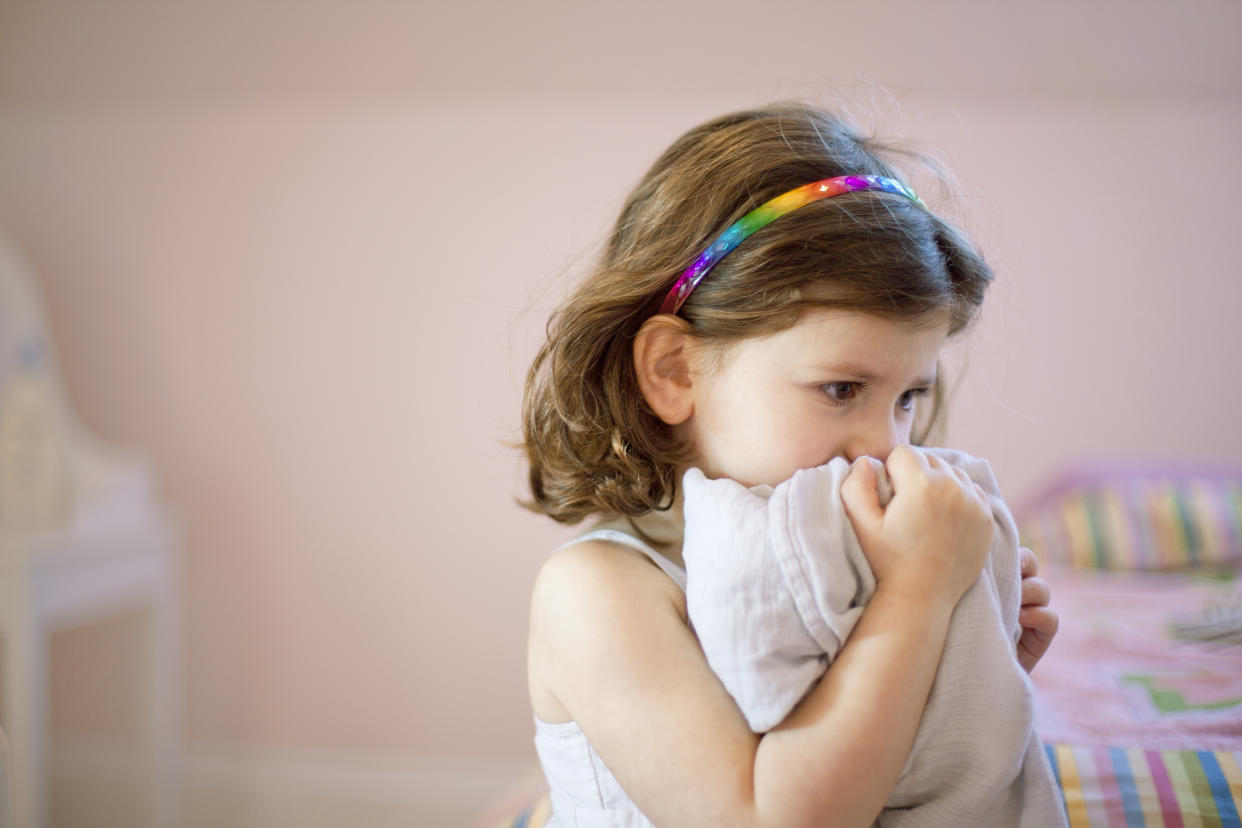How do you help an anxious child?

The United Kingdom is in the grip of an “anxiety epidemic,” with new figures revealing that the number of children having therapy for anxiety has risen by 60 percent in two years. Here in the United States, one in eight children suffers from anxiety.
Growing distress among children and teenagers is fueling record numbers of counseling sessions, including thousands for children having panic attacks.
Peter Wanless, chief executive of the National Society for the Prevention of Cruelty to Children, in the U.K., told the Telegraph, “Anxiety is a growing problem in young people’s lives today, and it is not going away. We all need to help children and teenagers find ways to cope with their anxious feelings and not dismiss them as an overreaction.
“One of the most important ways to help those that are struggling is to make sure they know they always have someone to talk to and they never have to suffer alone.”
Whether it’s not wanting to go to school or refusing to let go of your leg at a kids’ party, any parent who has a child with anxiety will appreciate how difficult it is to watch their little ones wrestle with situations that don’t seem that scary. But to anxious children, these everyday situations can feel genuinely threatening.
So how do you help an anxious child cope?
“When children seem anxious, talking things through can be helpful, but it’s often not enough. This is because anxiety often runs riot in their bodies as much as in their brains,” Jane Evans, a trauma parenting and behavior expert in the U.K., tells Yahoo.
“Stress and anxiety are different,” she continues. “Stress is short and usually has a context — an upcoming test or event they care about or need to perform well in. There are some nerves and doubts, but with ongoing encouragement and practice, their confidence starts to grow.
“Anxiety can be triggered by anything and everything, as it is a less rational response, as it comes from the fight/flight system,” she adds. “If a child has difficulties getting back emotionally and physically to a state of relative calmness and balance, they need extra support from the caring adults around them.”

Evans believes that in time, children can learn some simple techniques and resources to cope with the ups and downs of life.
Some examples:
Learning ways to use their breathing to signal to their body and brain that “we are safe” to come out of fight/flight mode. YouTube is full of fun ideas, like lion’s breath.
Lying flat on the floor or along a wall and breathing, which helps their whole system feel safe again.
Placing their hands on top of their head and breathing slowly in and out.
Resting one hand on their heart, the other on their stomach, and breathing.
“The best way is to do it with them when they are not anxious so it becomes habit,” Evans continues. “If they are reluctant, then make it part of your daily life, and they will soon learn and will use them in time.”
Evans has some theories about what lies behind this anxiety epidemic among children, one being a lack of opportunity for connection thanks to the fact that many parents are often stressed themselves and distracted by work, social media, and the pace of life.
“Even young children pick up on our stress,” she explains. “Higher levels of family breakups and having to navigate different homes, new partners, and other children, and so many of us on screens 24/7.
“In essence, it’s 21st-century life, which has evolved at a pace we just can’t adjust to, especially not children, whose brains and bodies are underdeveloped and need nurture, [and] plenty of time to play and interact emotionally and physically with their parents and family.”
Evans says that children’s anxiety can present in many forms, including irritability, sleep difficulties, being overly eager to please others, stomach pains and cramps, feeling hot and flustered, being off their food or bingeing on sugary or fatty foods, preparing and then excessively checking and rechecking, being forgetful and tearful or being withdrawn and negative, chewing/picking/jiggling about a great deal, suffering from repeated illnesses.
“My best advice is slow down!” Evans says. “Make life less hectic and yourself more able to have short, simple feelings-based chats, and learn to breathe as a family in every sense of the word!”
Read more from Yahoo Lifestyle:
• 12 healthy gift ideas for the wellness guru in your life
• Teens are vaping, not smoking. But is vaping safe?
• The health risks everyone should know before going to the nail salon
Follow us on Instagram, Facebook, and Twitter for nonstop inspiration delivered fresh to your feed, every day.



